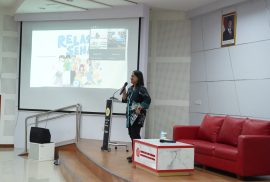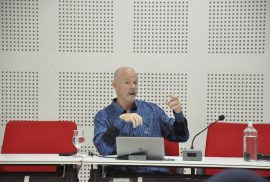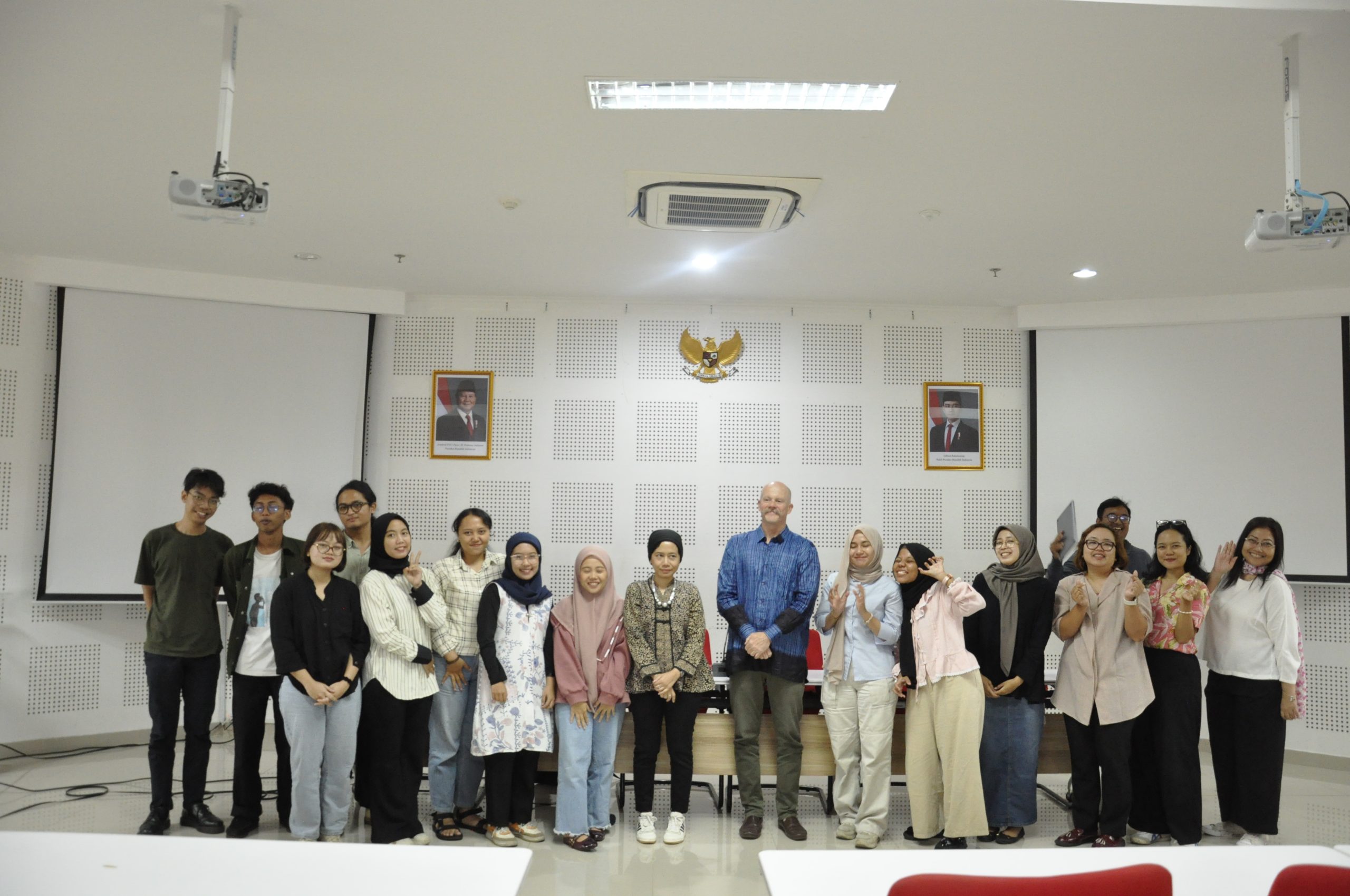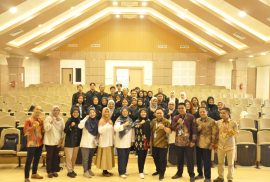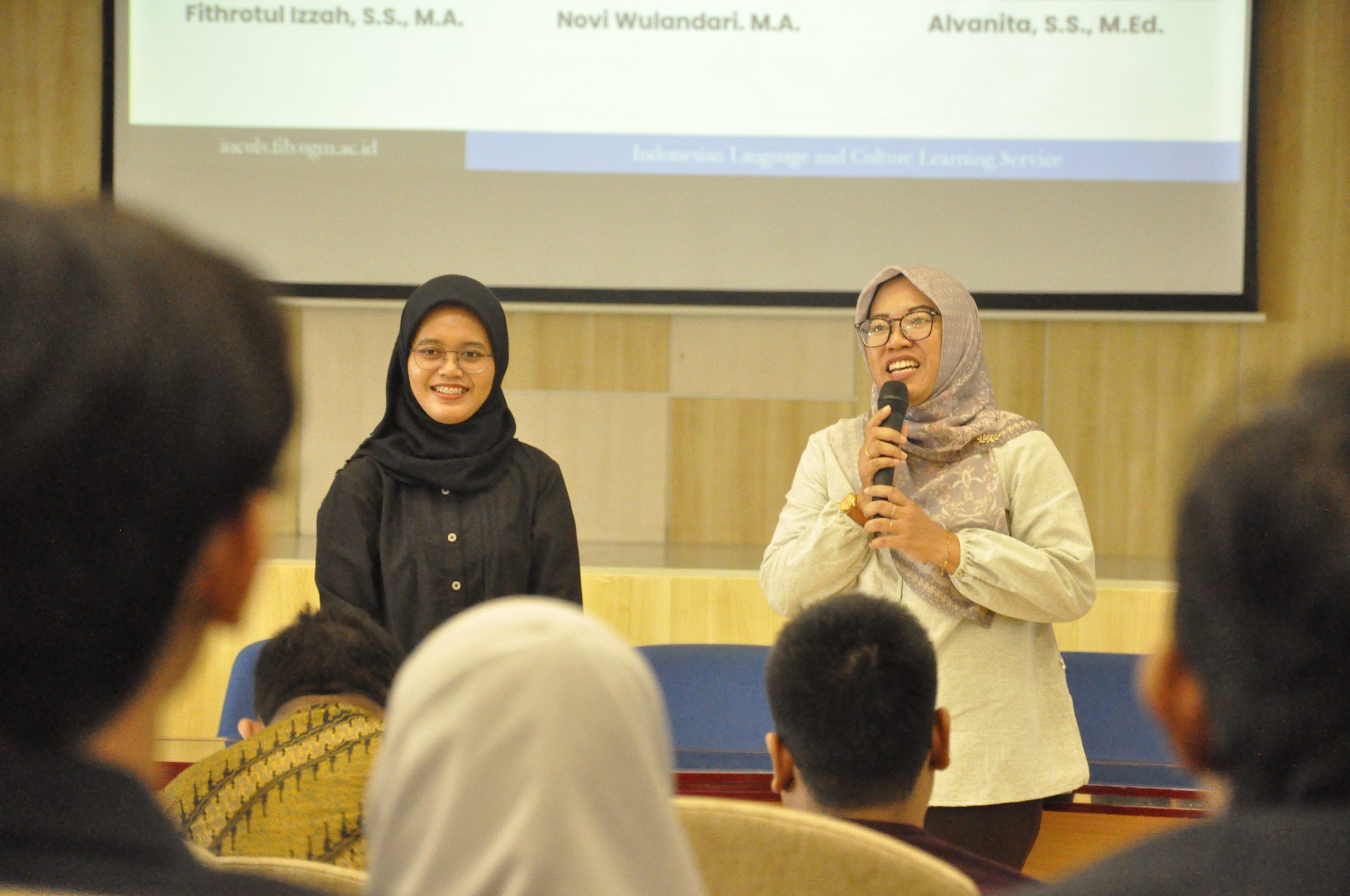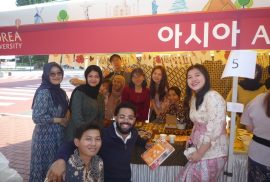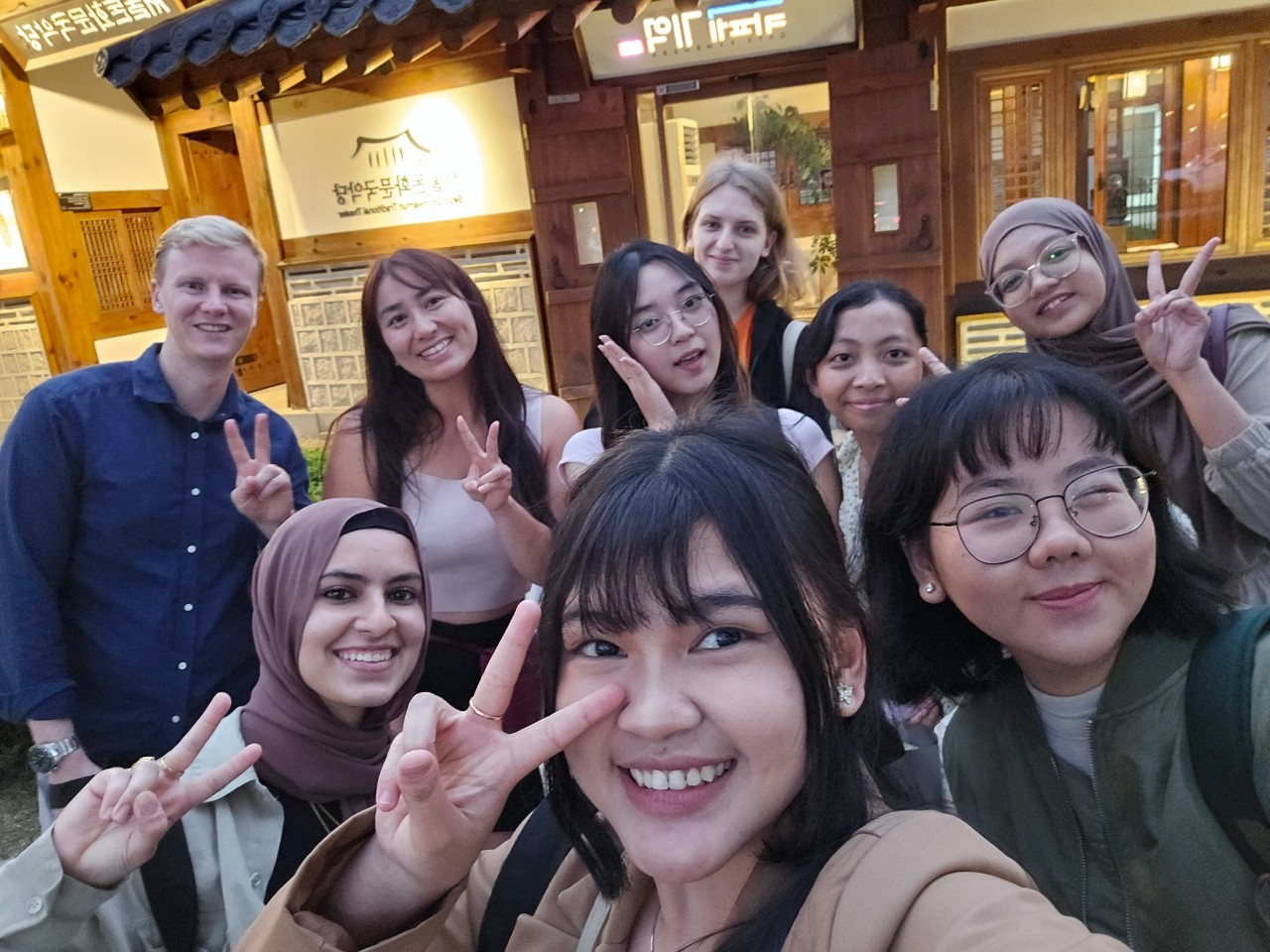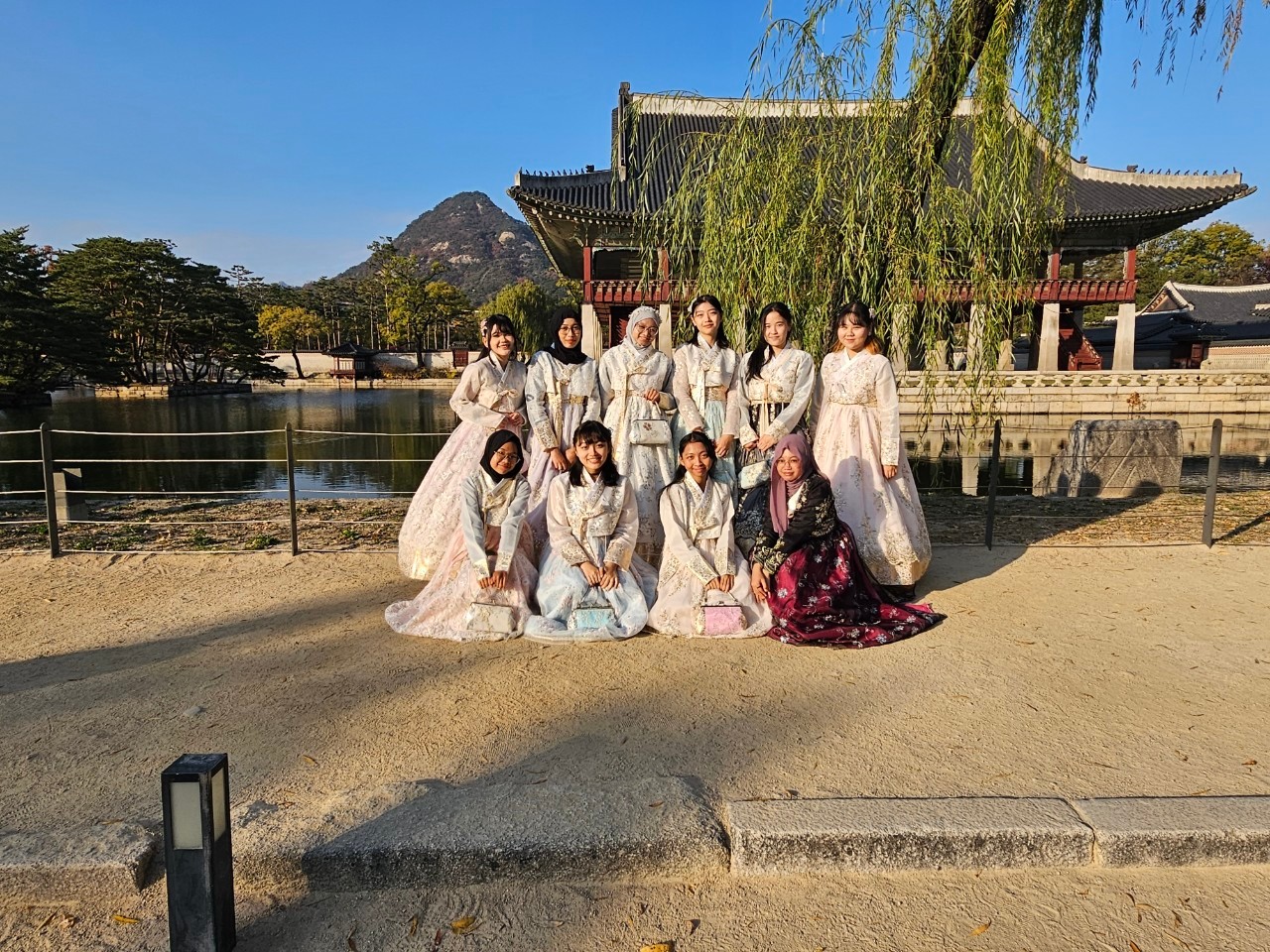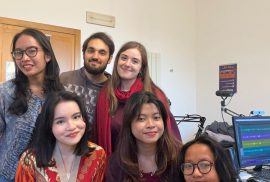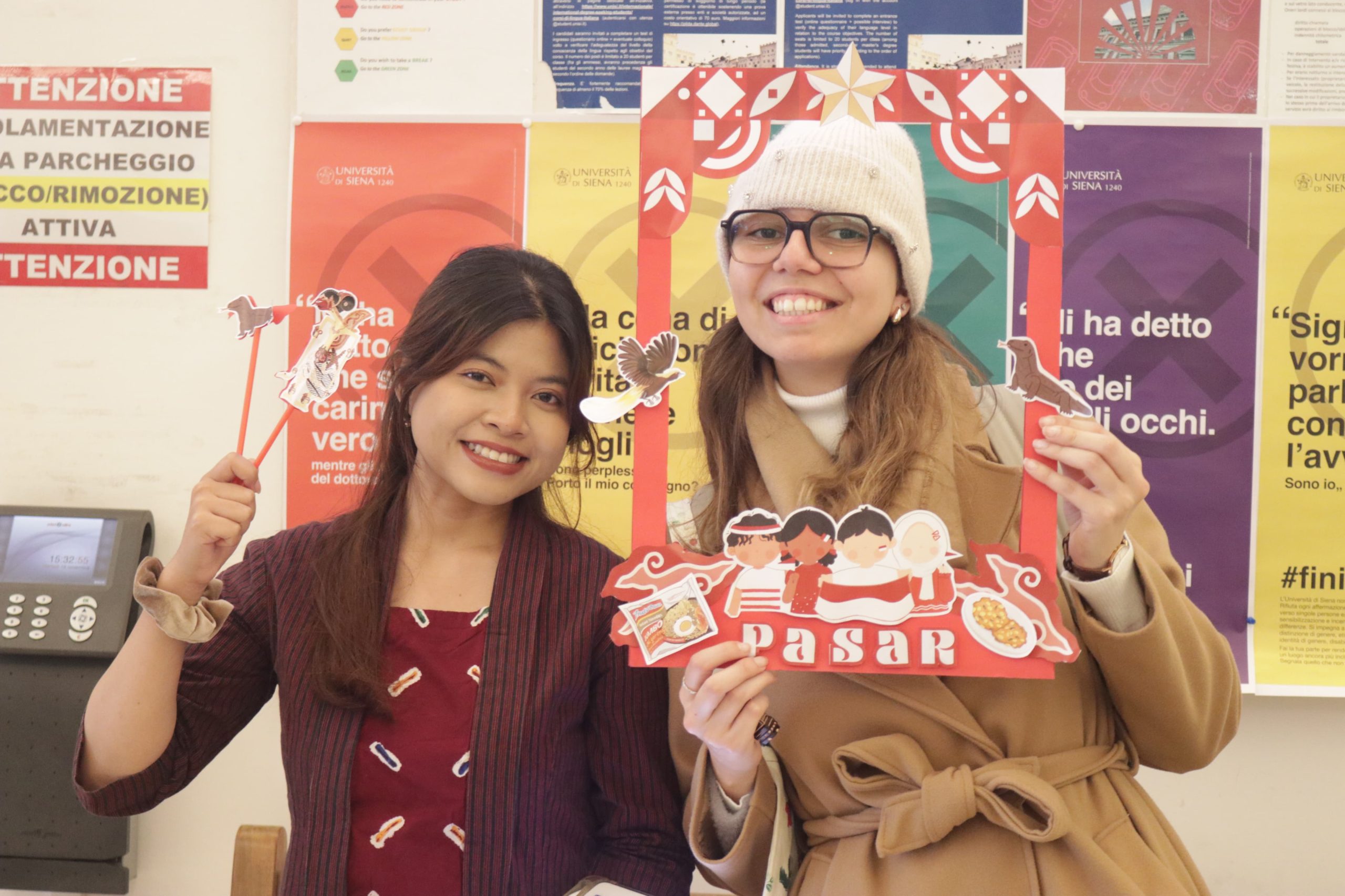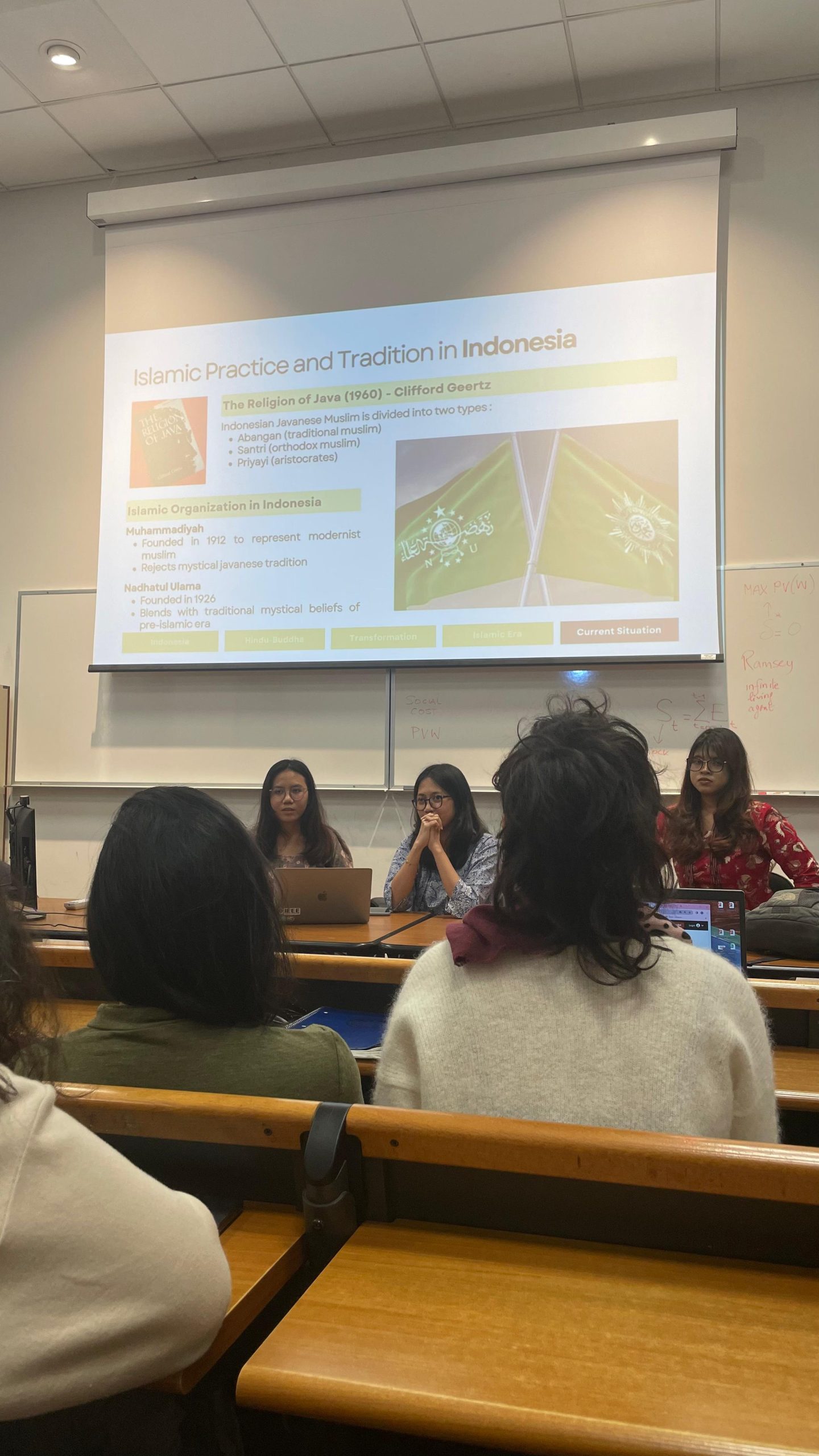Yogyakarta, 19/8/2025 – The Faculty of Cultural Sciences at Gadjah Mada University (UGM) held a special inaugural lecture for the new undergraduate students of the 2025 academic year. The event featured the keynote speaker, Prof. Dr. Wening Udasmoro, S.S., M.Hum., DEA., who presented on the theme “Healthy Relationships, Strong Minds, Enthusiastic Learning.”
In her presentation, Prof. Wening introduced her book titled “Healthy Relationships,” which is based on the principles of positive thinking, collaboration, and inclusivity. She emphasized that collaboration is the key to mutual progress, while inclusivity means involving all parties without exception, including those from economically disadvantaged backgrounds, remote areas, and friends with disabilities. She asserted that healthy relationships should not only be applied among students but also between lecturers and in external collaborations such as community service and internships.
Furthermore, Prof. Wening highlighted that diverse backgrounds could lead to conflicts or violence, making awareness of justice, equality, and democracy crucial for creating a safe and comfortable academic environment. She elaborated on various forms of violence that need to be watched out for, ranging from verbal, psychological, sexual, symbolic, to intellectual violence.
During this occasion, Prof. Wening reminded the new FIB students that their selection from a large pool of applicants is a significant achievement, but it must be accompanied by humility and respect for others. She emphasized that UGM should no longer be known for the term “killer lecturers,” but rather as a University that upholds healthy relationships.
The event was interactive, featuring a question-and-answer session between the new students and Prof. Wening. The discussion was lively, with questions coming from various majors within FIB. The critical inquiries from students enriched the collective understanding of the importance of building healthy relationships in both academic and social life.
The inaugural lecture concluded with a collective call to build awareness in creating security, comfort, and a positive learning spirit. It is hoped that all new FIB UGM students can embark on their academic journey with strong minds, healthy relationships, and a sustainable enthusiasm for learning.
In line with the Sustainable Development Goals (SDGs), this event underscores the importance of access to education and the establishment of basic living standards. By fostering an inclusive academic environment, UGM aims to ensure that all students, regardless of their backgrounds, have access to quality education and the necessary support to thrive.
Prof. Wening’s emphasis on collaboration and inclusivity resonates with the SDG goal of ensuring access to clean water and sanitation, as well as the need for development assistance in underprivileged areas. By addressing these issues, UGM is not only contributing to the academic growth of its students but also to the broader societal development.
As the new academic year begins, the Faculty of Cultural Sciences at UGM is committed to nurturing a culture of respect, understanding, and collaboration among its students and faculty. This commitment is essential for creating a conducive learning environment that promotes personal and academic growth.

